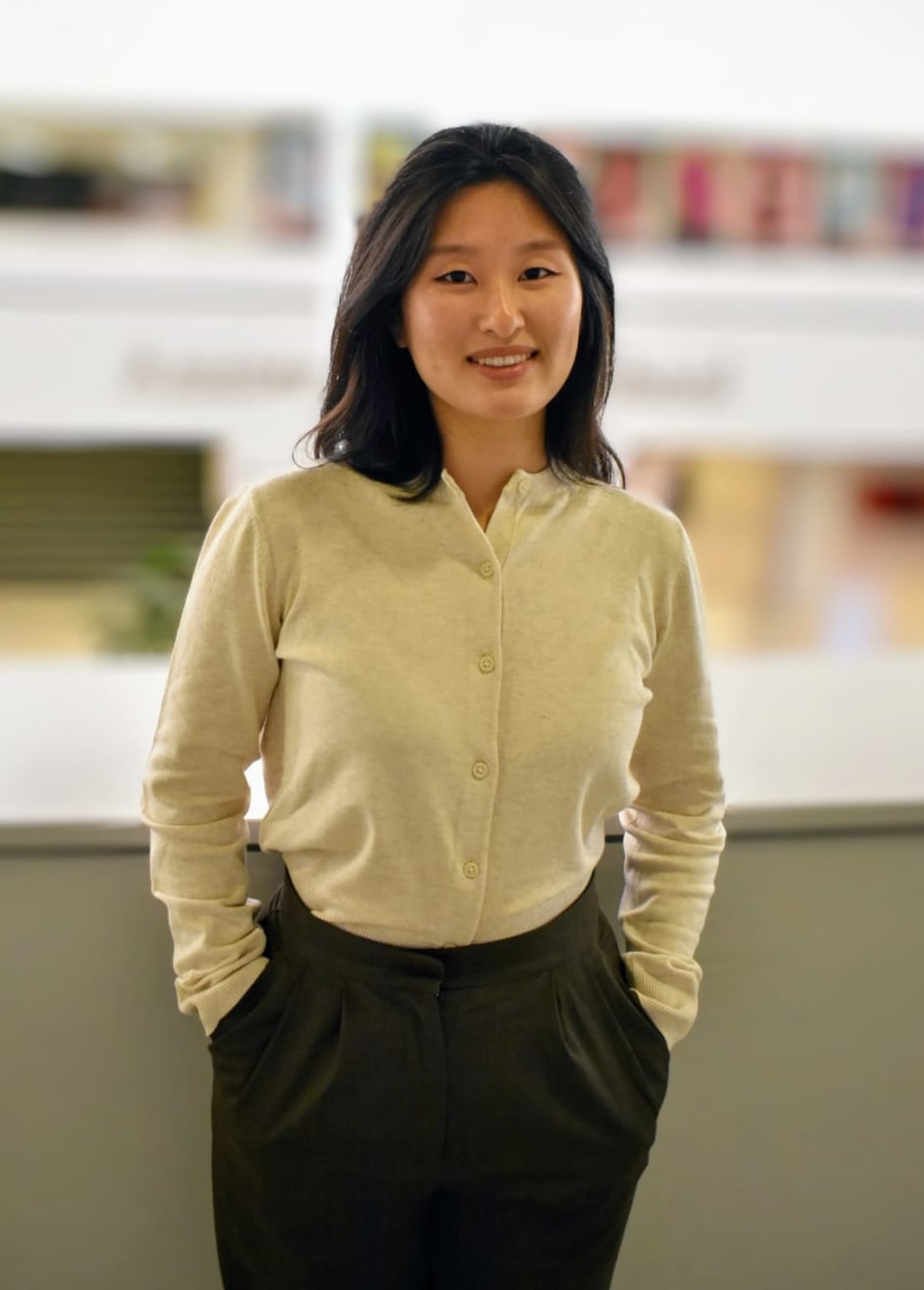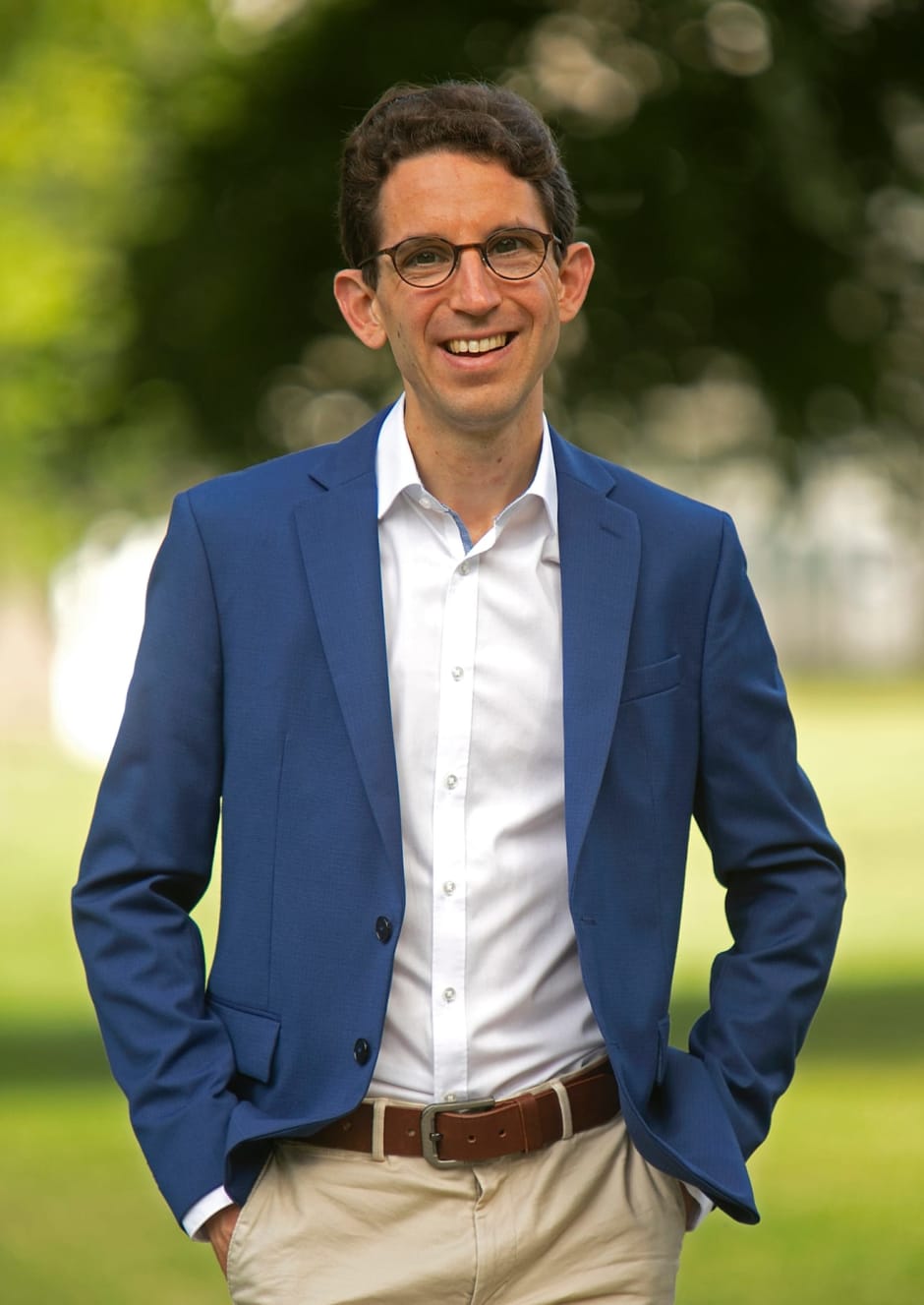
UvA switches from Deutsche Bank to ING: “No difference for the planet”
On insistence from activists, the Green Office and the Central Student Council (CSR), the UvA and the HvA launched a tender three years ago to select a sustainable house bank. ING emerged as the winner. Is this a green step forward for the university?
From now on, ING will handle the payment transactions of the UvA and HvA, replacing Deutsche Bank. The UvA announced this on Tuesday. The UvA launched the tender after criticism from the action group Scientists4Future and later also from the Central Student Council (CSR) and the Green Office regarding the house bank Deutsche Bank, which invests in the fossil fuel industry.
Not long after, the UvA changed course and announced its departure from Deutsche Bank and its intention to make sustainability a key criterion in the selection of a new house bank. The fact that ING has now been chosen is surprising, to say the least: Milieudefensie recently filed a lawsuit against the bank because of its investments in the fossil fuel industry. Last week, many angry and disappointed students contacted the Green Office and CSR to express their dissatisfaction with the switch.
A little bit sustainable
Sustainability was not the only selection criterion that the bank had to meet, the university announced in advance. Together with the HvA the UvA drew up a list of requirements. A new banker had to be able to facilitate “treasury banking”, i.e. depositing money in a current account with the government. Treasury banking enables public institutions such as universities and colleges to secure a reliable cash flow.
The UvA banks in three areas. It attracts money, manages its savings and handles payments: collecting tuition fees and paying salaries. Under pressure from Scientist4Future, the Green Office and the CSR, the university moved her savings from Deutsche Bank to BNG and NWB in 2023, both banks that score better on sustainability.
In addition, the bank must be solid enough to guarantee reliable and secure payments, according to the spokesperson of the UvA, in other words: it must have a Single A status. Bert Scholtens, professor of sustainable banking at the University of Groningen, confirms this. “As a private individual, you can choose Triodos Bank, but an international institution such as a university cannot survive on that alone. Triodos Bank is simply too small and does not have the capacity to provide reliable international payment and service transactions.”
With those requirements, six banks remained: ABN AMRO, Bank Nederlandse Gemeenten (BNG), Rabobank, the Nederlandse Waterschapsbank, Deutsche Bank again, and ING. The UvA approached all six banks, but in the end only two banks completed the tender process and registered. In that tender, the new banker was assessed on functionality (50 percent), sustainability (30 percent) and price (20 percent).
Disappointed
The Green Office and the Central Student Council (CSR) are disappointed with the outcome of the tender process. Co-manager Rachel Ham: “This is not what we had in mind when we entered the process. We wanted a fundamentally greener bank, such as Triodos, but now with ING there is hardly any difference.”

The Green Office, CSR and Scientists4Future were last informed by the UvA about the tendering process last summer and were given the opportunity to advise on the selection process. The CSR and Green Office advised increasing the percentage of sustainability and using the fair money guide as selection criteria. These wishes appear not to have been granted, as ING receives the lowest score on the fair money guide. Stefana Feciuc, chair of the CSR: “Something must have gone terribly wrong somewhere in the process to end up with ING in the search for a green bank. We are still considering how to proceed and are working with the Green Office on a statement.”
Feciuc and Ham are calling on students to contact them with questions and opinions on this matter. “We can then include these in our statement and ensure that the UvA answers these questions.”
UvA director Jan Lintsen is more optimistic about the switch to ING: “This is the first time we have included sustainability so explicitly and heavily in the tender.” Is this really a step forward for the university? Scholtens has his doubts. “I find 30% sustainability remarkable: things are often sustainable or they aren’t: theirs is no such thing as a little bit of slavery. This feels more like a form of greenwashing: a response to the activists’ demands.”
Difference in sustainability
Scholtens wonders how exactly the university has looked at sustainability. There are different ways of looking at sustainability, such as the exclusion principle used by activists via the Eerlijke Geldwijzer (Fair Money Guide): you cannot invest in nuclear weapons, tobacco, liquor and the fossil fuel industry. But if you look at it from a scientific perspective, you conclude that this does not make the world more sustainable, says Scholtens: “You can also look at it another way. The world is a big mess, and we want to change that. How do we do that? And who are the people in positions to make a difference?”
As a major customer, the UvA can also impose conditions on a bank such as ING, thereby encouraging the bank to become greener, says Scholtens. “Banking is a relationship, I always tell my students. If your friend has done something stupid, you don’t immediately say: I never want to see you again. Instead, you look for a solution to do things differently next time. That’s also a way of doing things.”

As a major customer, the UvA can also impose conditions on a bank such as ING, thereby encouraging the bank to become greener, says Scholtens. “Banking is a relationship, I always tell my students. If your friend has done something stupid, you don’t immediately say: I never want to see you again. Instead, you look for a solution to do things differently next time. That’s also a way of doing things.”
In response, the UvA states: “The tender process utilised international sustainability data, such as ISS ESG ratings and data on financed emissions, in order to assess sustainability in a consistent and verifiable manner. We understand the response from the CSR and others. We explained to them at an early stage that we cannot exclude all kinds of banks in advance for payment transactions, as the financial services required by the UvA and the AUAS are complex. Sustainability is important, which is why we have given it considerable weight in the criteria. At the same time, the salaries of thousands of employees must also be paid, and there are huge numbers of payments to and from our students, including many international students. All of this must be processed properly.”
Opposite effect
According to UvA professor of sustainable finance Paul Smeets, switching to a greener bank will have little effect in practice. “All major banks are involved in fossil fuels in one way or another. As long as we continue to use oil, banks will invest in it. Unfortunately, that’s how the market works at the moment.”
Based on the moral question of whether you should invest your money in oil, you can choose a sustainable bank, such as Triodos, Smeets continues. “But if you look at the impact this has on the use of fossil fuels worldwide, the scientific evidence is clear: it has no effect on oil and gas companies.
In fact, switching to a greener bank can even have the opposite effect, according to Smeets. “There are anti-sustainability funds in the US that jump into the gap when companies and institutions in Europe decide to do the morally right thing and stop investing in the fossil fuel industry. Such anti-sustainability funds will only encourage oil and gas companies to pump even more oil out of the ground.”
“It’s not a popular message, but it’s what scientific research shows,” concludes Smeets. “If public perception is different, then as a university you have to take that into account. But the financial market is more complex than you might think at first glance.”
Vegetarian cafeterias and fewer flights
So what can the UvA do to become more sustainable? Smeets: “I don’t think you can become more sustainable in terms of finances. Making the cafeterias vegetarian will have more effect.” The influence of banks is extremely indirect, Scholtens agrees. “Reducing the number of kilometres flown by students and staff would for example have a bigger effect.”
Ultimately, Smeets concludes, it is through its education that a university really makes a difference. “By educating students well, teaching them to think critically and giving them the tools to make the world a better place.”


